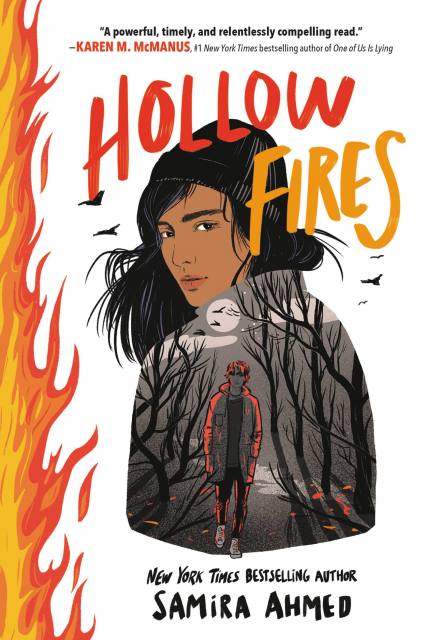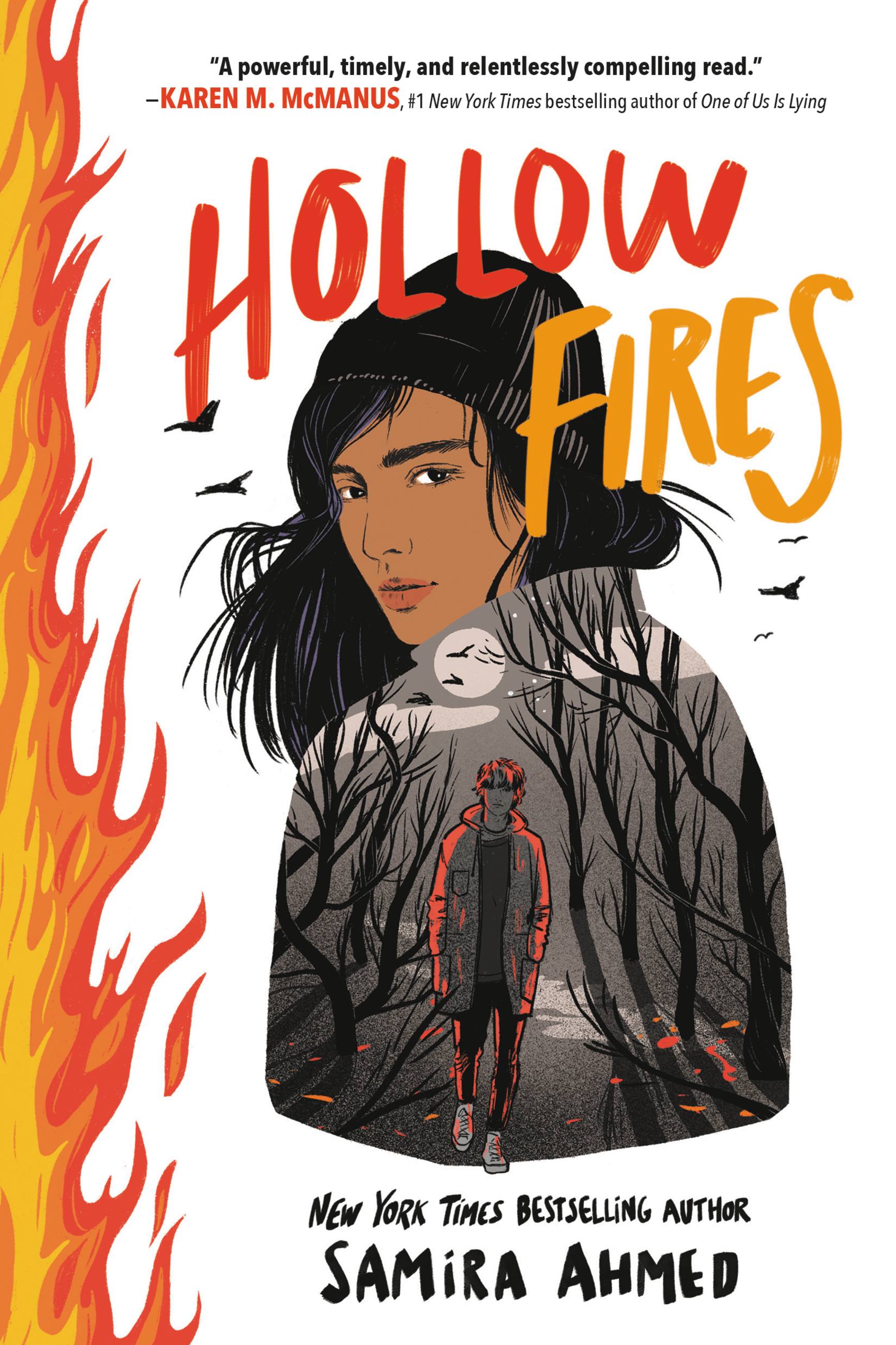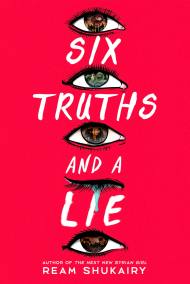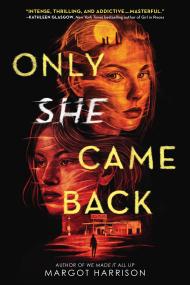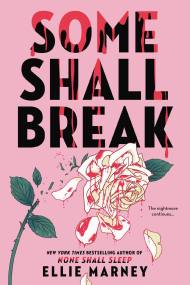Promotion
Use code MOM24 for 20% off site wide + free shipping over $45
Hollow Fires
Contributors
By Samira Ahmed
Formats and Prices
Prices
- Sale Price $1.99
- Regular Price $8.99
- Discount (78% off)
Prices
- Sale Price $1.99 CAD
- Regular Price $11.99 CAD
- Discount (83% off)
Format
Format:
This item is a preorder. Your payment method will be charged immediately, and the product is expected to ship on or around May 10, 2022. This date is subject to change due to shipping delays beyond our control.
Also available from:
Safiya Mirza dreams of becoming a journalist. And one thing she’s learned as editor of her school newspaper is that a journalist’s job is to find the facts and not let personal biases affect the story. But all that changes the day she finds the body of a murdered boy.
Jawad Ali was fourteen years old when he built a cosplay jetpack that a teacher mistook for a bomb. A jetpack that got him arrested, labeled a terrorist—and eventually killed. But he’s more than a dead body, and more than “Bomb Boy.” He was a person with a life worth remembering.
Driven by Jawad’s haunting voice guiding her throughout her investigation, Safiya seeks to tell the whole truth about the murdered boy and those who killed him because of their hate-based beliefs.
This gripping and powerful book uses an innovative format and lyrical prose to expose the evil that exists in front of us, and the silent complicity of the privileged who create alternative facts to bend the truth to their liking.
Genre:
-
"With Hollow Fires, Samira Ahmed offers us an impossible-to-put-down thriller that is both spectacularly haunting and deeply thoughtful. Safiya and Jawad are not narrators we usually see, and their harrowing story is a wholly original commentary on perception, community, and the way society weighs one life against another."Sabaa Tahir #1 NYT bestselling author of An Ember in the Ashes
-
"A powerful, timely, and relentlessly compelling read. Hollow Fires burns brightly with Samira Ahmed's trademark blend of thought-provoking social relevance, heartfelt coming-of-age, and whip-smart plotting."Karen M. McManus, #1 New York Times bestselling author of One of Us Is Lying
-
"The book presents a ripped-from-the-headlines story that will be an easy sell both in terms of theme and topic."School Library Connection
-
"A deeply chilling, inventive, and timely page-turner."Kirkus, starred review
-
"Weaving alternating perspectives with articles and other media quotes, both real and fictional, this drives an all-too-real story that educates as much as it enthralls."Booklist
-
"Ahmed weaves evocative prose with images, articles, and text messages to explore with skill and depth the twining of social media in an age of misinformation, alt-right political movements, and racism and Islamophobia."Publishers Weekly, starred review
-
"Ahmed offers up a twisty, thrilling mystery while deploying the details of the crime as a framework for her exploration of Islamophobia and how wealth and privilege shield criminals from suspicion. The Chicago setting and the ultimate revelations of the horrific act call up elements of the Leopold and Loeb murders... it also makes a timely whodunnit that will satisfy any reader looking for a mystery, rich in secrets and social commentary."BCCB
-
"In a novel that cleverly uses time jumps; alternates narration (between Safiya and ghost Jawad); and occasionally incorporates text messages, newspaper articles, and the like, Ahmed positions her story in the larger context of a racially divided world."Horn Book
-
*"Her devastating and inspiring book is at once a gripping thriller and a passionate call for change that’s urgent and timely—and sadly, also timeless."Book Page
-
"This impassioned ride toward the truth, based on a true story, will make readers think about the media bites they consume and white youth’s easy access to radicalization."School Library Journal, starred review
- On Sale
- May 10, 2022
- Page Count
- 416 pages
- Publisher
- Little, Brown Books for Young Readers
- ISBN-13
- 9780316282840
Book Club Guide
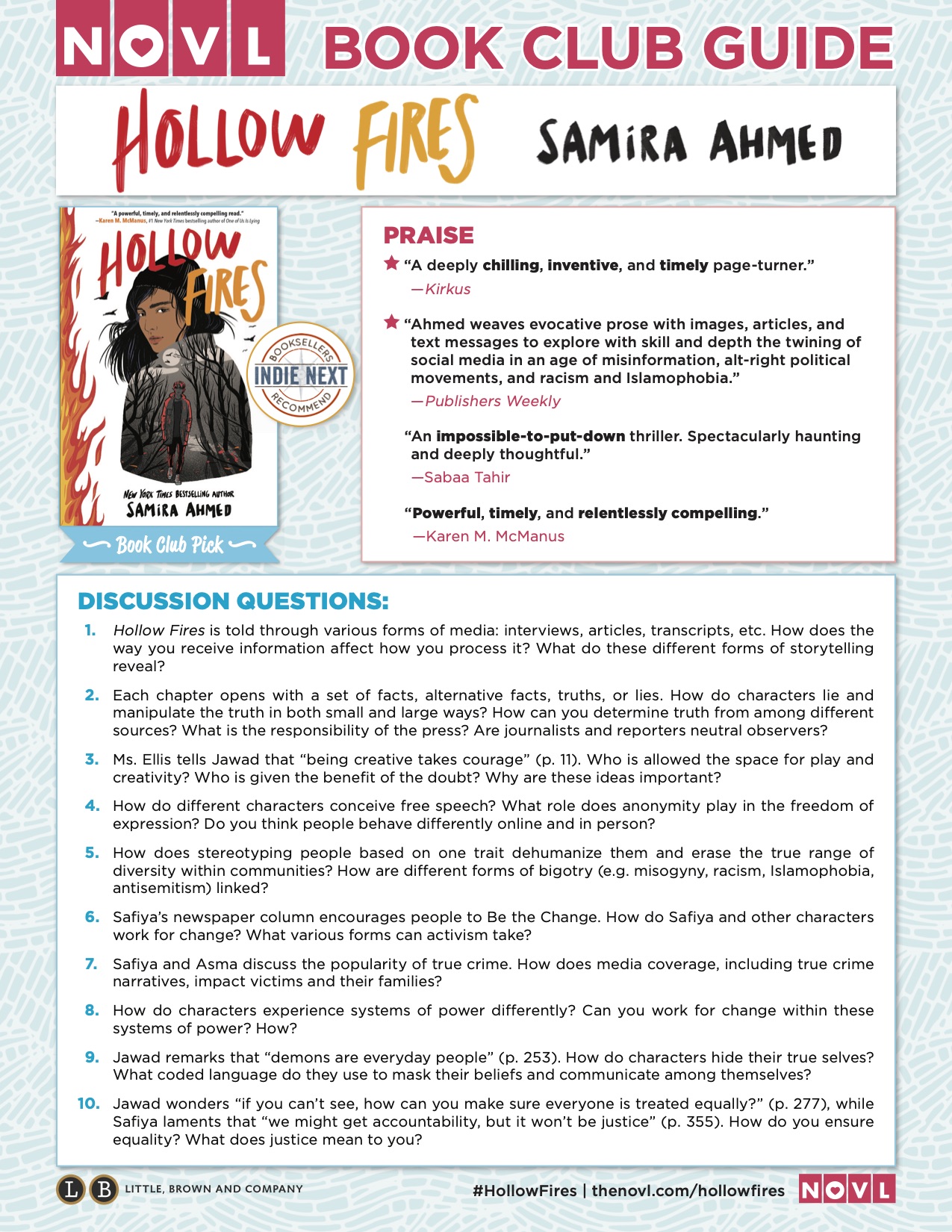
Newsletter Signup
By clicking ‘Sign Up,’ I acknowledge that I have read and agree to Hachette Book Group’s Privacy Policy and Terms of Use
